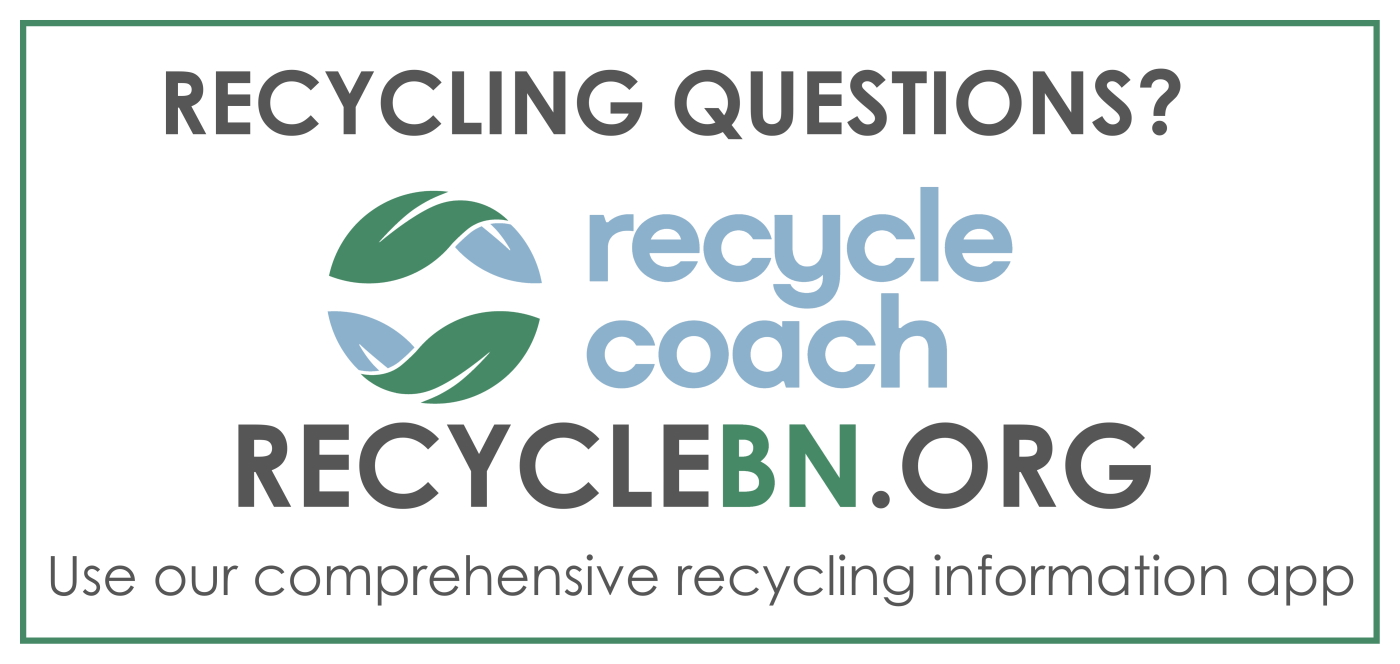HHW Alternatives
Eliminating household hazardous wastes is a prime concern of the Ecology Action Center. Proper disposal can be difficult and confusing, which is why we need to reduce the amounts we purchase and use in the first place. The good news, however, is that there are simple alternatives to keep your house clean that are much safer than the hazardous chemicals we are purchasing now.
Tips for purchasing household cleaners
- Always thoroughly read the labels of products you are purchasing. The least toxic substances will not have warnings, but products with potentially harmful chemicals will have warnings posted somewhere on the label.
- Buy products that do not have a scent. Odorless sprays and washers have less chemicals in them and are safer for indoor use.
- If you have leftover product that you wish to get rid of, see if a neighbor or friend needs some before throwing it away.
Safe alternatives to household chemicals
| Household Materials |
Safer Alternatives |
| All-Purpose Cleaner |
- Vinegar or lemon juice diluted with water; or three tablespoons baking soda in 1 quart water.
- Mix ½ cup of borax in 1 gallon of hot water. Cool before using.
|
| Glass Cleaner |
- Mix one tablespoon of vinegar or lemon juice in one quart of water. Spray on glass and use newspaper to wipe dry.
|
| Drain Cleaner |
- Pour 1/4 cup of baking soda and 1/2 cup of vinegar into the drain. Cover the drain until fizzing stops, and then flush with boiling water.
|
| Furniture Polish |
- For unvarnished surfaces, mix 1 part lemon juice and 2 parts vegetable or olive oil.
|
| Oven Cleaner |
- Clean spills as soon as the oven cools using steel wool and baking soda.
- For tough stains, add salt (do not use this method in self-cleaning or continuous cleaning ovens).
- Place a shallow pan of water in a heated oven (the steam will loosen grime).
|
| Mothballs |
- Use cedar chips, lavender flowers, rosemary, mint, or white peppercorns.
|
| Insecticides |
- Mix 2 to 4 tablespoons liquid soap in 1 gallon of water. Spray on foliage. Test first as soap may damage some plant foliage.
- Caulk and seal doorways to prevent insect infestation.
|
| Insect Repellent |
- Use repellants made from distillates of cedar wood, orange, eucalyptus, and bay leaves for house sprays and flea collars.
|
| Roach Control |
- Mix 1 part borax or boric acid, 1 part flour, 1 part sugar and set out in warm dark places. Repeat periodically.
|
| Ant Repellant |
- Wash countertops with an equal mixture of vinegar and water.
- Plant mint around your house.
- Scatter coffee grounds around the outside of the house.
- Use boric acid.
|
| Aphid Control |
- Use a few drops of liquid dishwasher soap in a quart of water and spray on plants.
- Add ladybugs to your garden.
|
| Flea and Tick Control |
- Feed brewer’s yeast and garlic to pests.
- Add 1 teaspoon vinegar to 1 quart water per 40 pounds pet weight to use as a dip or spray.
- Spread diatomaceous earth moistened with water on the yard (1lb per 1000 sq ft) and avoid breathing the dust.
|
| Rug or Upholstery Cleaner |
- Sprinkle stains with dry cornstarch or baking soda and vacuum.
- Use soap-based, non-aerosol cleaners.
|
| Copper Polish |
- Rub with a paste of equal parts flour, salt, and white vinegar or lemon juice. Heat the mixture and cool before using.
|
| Copper/Silver Polish |
- Scrub with a paste of equal parts baking soda, soap, and water
- Use non-gel toothpaste.
|
| Toilet Bowl Cleaner |
- Mix ½ cup of borax in 1 gallon of hot water. Cool before using.
|
| Tub and Tile Cleaner |
- Scrub with baking soda or a combination of cream of tartar and 3% non-bleaching hydrogen peroxide.
|





